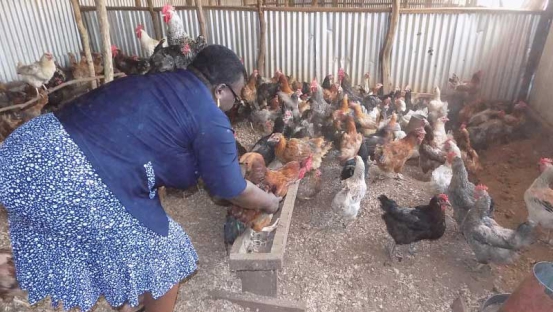×
The Standard e-Paper
Join Thousands Daily

Mwalimu Jackbed Njue, a senior education official in Embu County, rears improved kienyenji (indigenous) chicken farming which are raking in tidy sum every month.
“I started this project two years ago and it has grown from a handful of chicks to thousands of mature birds,” she says.